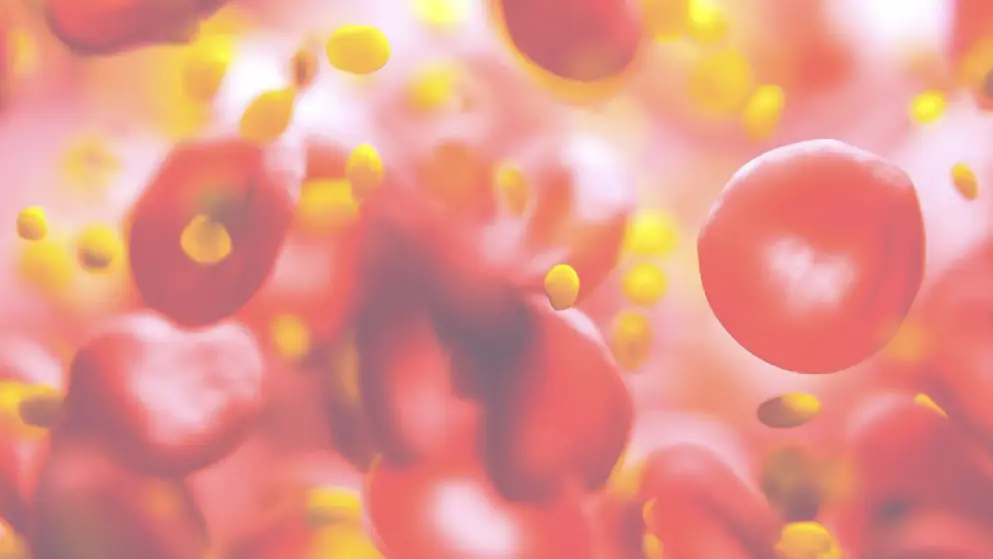
News
Novartis announces NEJM publication of three pivotal trials showing efficacy of inclisiran, an investigational first-in-class siRNA cholesterol-lowering therapy.
Novartis announced the publication of three pivotal Phase III clinical trials for inclisiran, a potential first-in-class small interfering RNA (siRNA) investigational agent for hyperlipidemia in adults . The findings were published in two online articles ahead of print in The New England Journal of Medicine.
The primary endpoints were achieved in all three trials. Namely, percentage change in LDL-C from baseline to 17 months and time-adjusted percentage change in LDL-C from baseline from 3 through 18 months. This demonstrates that after two starter doses, twice-yearly subcutaneous dosing with inclisiran resulted in durable and potent LDL-C reductions versus placebo. Inclisiran was well-tolerated with a safety profile similar to placebo.
Hyperlipidemia refers to the high level of lipids (fats, cholesterol, triglycerides), such as LDL-C, found in the blood that are either acquired or a result of genetic disorders. The length of time a person has elevated LDL-C levels, is understood to be causal to ASCVD (atherosclerotic cardiovascular disease ), which can lead to a cardiovascular event such as a heart attack or stroke. LDL-C is the most readily modifiable risk factor for ASCVD. People who are on lipid-lowering therapies often do not reach optimal LDL-C levels, leaving them at increased risk for significant morbidity and mortality associated with this condition. Approximately 40 million patients in the US have been diagnosed with atherosclerotic cardiovascular disease (ASCVD) or familial hypercholesterolemia (FH) and are at risk of a cardiovascular event..
ORION 10 and 11 - One article reported the results from the ORION-10 and -11 studies, which evaluated the use of inclisiran in addition to maximally tolerated lipid-lowering therapies in patients with ASCVD (ORION-10) or ASCVD and ASCVD risk equivalents (ORION-11) through 18 months. In ORION-10 and -11, at 17 months inclisiran resulted in placebo-adjusted LDL-C reduction of 52% and 50% respectively and time-adjusted reduction from 3 through 18 months of 54% and 49% respectively. Treatment-emergent adverse events were generally similar between the inclisiran and placebo groups.
ORION 9 -A separate article on ORION-9 highlighted results of treatment with inclisiran in HeFH (heterozygous familial hypercholesterolemia ), a rare hereditary disease that causes high levels of LDL-C and leads to early onset of ASCVD. In this study, inclisiran reduced LDL-C by 50% at 17 months with a time-adjusted reduction of 45% from 3 through 18 months, compared to placebo. There was a robust reduction of LDL-C with all FH genotypes. Treatment-emergent adverse events were similar between inclisiran and placebo.
“Familial hypercholesterolemia remains a difficult condition to treat but the potential addition of inclisiran gives hope to many FH patients to help meet and maintain guideline-recommended LDL-C levels with two injections of inclisiran per year,” said Frederick Raal, M.D., University of the Witwatersrand, Department of Medicine, University of the Witwatersrand Kallend, South Africa.
In all three Phase III trials patients received inclisiran or placebo in addition to maximally tolerated lipid-lowering therapy. The twice-yearly dosing regimen, which followed two starter doses, was administered subcutaneously by a healthcare provider.
Inclisiran is currently under review by the FDA and European Medicines Agency for use in adults with ASCVD or HeFH who have elevated LDL-C while being on a maximum tolerated dose of a lipid-lowering therapy. If approved, inclisiran will be the first and only cholesterol-lowering treatment in the siRNA class.
About the ORION Phase III LDL-C lowering studies : ORION-9 was a pivotal Phase III, placebo-controlled, double-blind, randomized study to evaluate the efficacy, safety and tolerability of inclisiran sodium 300 mg administered subcutaneously in 482 patients with clinical or genetic evidence of heterozygous familial hypercholesterolemia (HeFH) and elevated LDL-C, despite maximum tolerated dose of statin, with or without other lipid-modifying therapy, and who required additional LDL-C reduction. Inclisiran was administered in two starter doses and then every 6 months thereafter.
ORION-10 was a pivotal Phase III, placebo-controlled, double-blind, randomized study to evaluate the efficacy, safety and tolerability of inclisiran sodium 300 mg administered subcutaneously by a healthcare professional in an initial dose, again at 3 months, and then every 6 months thereafter in 1,561 participants with ASCVD and elevated LDL-C, despite maximum tolerated dose of LDL-C-lowering therapies (e.g., a statin or ezetimibe). The study was conducted at 145 sites in the United States.
ORION-11 was a pivotal Phase III, placebo-controlled, double-blind, randomized study to evaluate the efficacy, safety, and tolerability of inclisiran sodium 300 mg administered administered subcutaneously by a healthcare professional in an initial dose, again at 3 months, and then every 6 months thereafter in 1,617 patients with ASCVD or ASCVD-risk equivalents and elevated LDL-C despite maximum tolerated dose of statin therapy (with or without ezetimibe6 The international study was conducted at 70 sites in seven countries.
See_ 1.Ray K, Wright R, Kallend D, et al. "Two Phase III Trials of Inclisiran in Patients with Elevated LDL Cholesterol". [published online ahead of print March 18, 2020]. N. Engl. J. Med., https://www.nejm.org/.
See- 2. Raal, F, Kallend D, Ray K, et al. "Inclisiran for Heterozygous Familial Hypercholesterolemia". [published online ahead of print March 18, 2020]. N. Engl. J. Med., https://www.nejm.org/.
Condition: Dyslipidaemia
Type: drug

